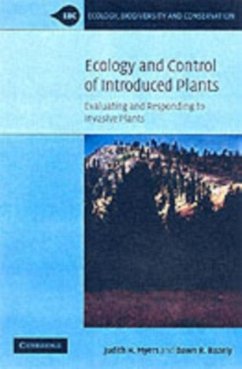The global spread of plant species by humans is both a fascinating large scale experiment and, in many cases, a major perturbation to native plant communities. Many of the most destructive weeds today have been intentionally introduced to new environments where they have had unexpected and detrimental impacts. This 2003 book considers the problem of invasive introduced plants from historical, ecological and sociological perspectives. We consider such questions as 'What makes a community invasible?', 'What makes a plant an invader?' and 'Can we restore plant communities after invasion?' Written with advanced students and land managers in mind, this book contains practical explanations, case studies and an introduction to basic techniques for evaluating the impacts of invasive plants. An underlying theme is that experimental and quantitative evaluation of potential problems is necessary, and solutions must consider the evolutionary and ecological constraints acting on species interactions in newly invaded communities.
Dieser Download kann aus rechtlichen Gründen nur mit Rechnungsadresse in A, B, BG, CY, CZ, D, DK, EW, E, FIN, F, GR, HR, H, IRL, I, LT, L, LR, M, NL, PL, P, R, S, SLO, SK ausgeliefert werden.


